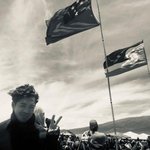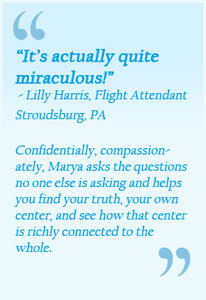Staying True | Mauna Kea Volunteer Sonny Ganaden

Aloha Kakou!
The Hawaiian people and Mauna Kea protectors resisting the TMT are setting a stellar example of pacific resistance by staying true. They are true to the lineages of Mahatma Ghandi, Martin Luther King, and countless activists whose devotion to non-violent civil disobedience has changed history.
It was all women on the front line who linked arms and were prepared to face arrest, or permanent injury, on July 17th as they blocked the start of construction. And they sang. As they faced long batons held by swarms of uniformed police from across the islands, with the potential for tear gas or a weaponized acoustic system, the women chanted ancient mele, “their voices rising through the fog.” Thus writes Sonny Ganaden, who has volunteered legal services for the kupuna arrested on Mauna Kea last month.
I am sharing his article here because telling why he supports the protectors gives us such deep understanding of the significance of “Mauna Kea, Mass Incarceration, and Democracy.” We must see how it touches us all. This historical moment, the need for social justice, and the clarity of purpose by kia’i coincide to make this a turning point.
This movement touches us all, because it’s about how we will live on Earth — taking care of it or looking away from its desecration. Big thanks to Jim Albertini for sharing Sonny’s story.
Namaste & Malama Pono!
Marya
—————————————
Hawaiian Alliance for Progressive Action — HAPA — Kuleana Academy sponsors pro-bono legal services for the kupuna arrested on Mauna Kea on July 17, 2019.
Mauna Kea, Mass Incarceration, and Democracy,
By Sonny Ganaden, Kuleana Academy Fellow
I am proud to be one of many lawyers from across Hawaii who are defending the civil liberties of kupuna, the elderly individuals who offered themselves for arrest on July 17, 2019, in protection of Mauna Kea. We have offered our services in the collective belief that they are not criminals in light of their rights under the federal and state constitutions, their rights as indigenous peoples to this place, and their rights as human beings to worship and gather in peace. Without sharing the confidential matters that are inherent in this work, this essay shares my reason for this work- the equitable application of the rule of law in the islands.
The current events happening on Hawaii Island were foreshadowed for years. Despite numerous lawsuits, outcry from members of the native Hawaiian community, and admitted failures by the state and the University of Hawaii in the management of Mauna Kea, in July of 2019, the Governor authorized the building of a telescope near the summit of the most sacred place in native Hawaiian religion.
On the third day, we went to Mauna Kea. The night before, friends were posting online images of people I knew; longtime activists, PhD professors, and former students; who chained themselves to a cattle grate. To build the telescope, the construction vehicles would have to run them over. A few days later, there was talk of hundreds of people ascending the road.
The news had stories that police were being summoned from across the islands. As lawyers who practice in criminal court, we knew that if individuals were arrested on Mauna Kea, they would be arraigned shortly thereafter, likely at Hilo District Court. Because those individuals were likely without counsel, they could spend days or weeks in jails that are overcrowded and unsafe, despite being eventually found innocent. This happens often in our overcrowded system. If the news was right, and numerous people were going to be arrested, we knew the criminal justice system is not designed for mass incarceration due to mass protest.
We ascended the mountain, wearing suits in the mist, ready to argue. It felt ridiculous to be dressed for an air-conditioned courthouse. We arrived in time to see 35 elderly individuals being issued citations from officers, and released down the road from the protest site. The whole experience felt surreal and absurd. We maintained our appearances as lawyers, just in case we had to follow paddy wagons down the mountain.
For hours we couldn’t see the front line, but could hear the chants of protesters, and the rumble of idling police wagons, heavy equipment, generators, and lifted trucks blocking the road. We saw the hundreds of officers, with uniforms from departments across the islands. We were surprised by their seeming lack of coordination. We tried to do the math then and there- How many officers does it take to arrest a protester? How many vans are present? How many people can a police van hold? How many people will block the road, stopping the vans from leaving the mauna? When tear gas cans explode, where will the wind push the poison? What fresh hell is about to unfold?
The rest is history. Officers dispersed around 4PM. We traveled to the front line to see our friends and relatives. We didn’t know it was all women on the front line, who had linked arms and were prepared to face arrest, or permanent injury from long batons, chemical tear gas or a weaponized acoustic system. We got to the line just as they began to sing, their voices rising through the fog.
As an organizer, I have been receiving real push back from friends and colleagues regarding the use of the word “decolonizing” when referring to the work of changing the state of Hawaii’s criminal justice system. The word is intentional, borrowed from a few favorite writers like Ngũgĩ wa Thiong’o, Haunani Kay Trask, Epeli Hau’ofa, and from legal scholars who expanded critical legal theory over the last several decades. The word is from the most famous minds of the 20th century. Before they articulated visions of new nations, Mohandas Ghandi and Nelson Mandela were first lawyers and pacifists, who spoke ardently of decolonizing. I sure ain’t Ghandi or Mandela, and we don’t live in the political powder kegs that were colonial India or South Africa. The point is that a decolonial legal strategy Is rooted in the lived experience of people who were historically displaced from the formation of law during the colonial era, and has as its end goal the preservation of the planet for future generations and the establishment of substantive human equality. It has less to do with determining blame and more to do with seeing human beings as having inherent rights which predate the formation of our present politics. The point is that peaceful nonviolent resistance creates lasting change and a safer world. This strategy has never has been and it never will be popular with rich oligarchs, and has historically led to violence in the preservation of power. “Power concedes nothing without a demand,” as was reiterated during the American civil war, so succinctly said by Frederick Douglass. I’ve seen that demand now with my own eyes at Mauna Kea.
Using the government’s ability to inflict violence in support of business interests is a hallmark of colonialism. Even the most conservative of local historians agree that the non-democratic government of the late 19th century were in place to support business interests, and specifically the collection of goods and capital for foreign export. The TMT is not as overtly horrific as the sugar barons of a century ago, but they continue a tradition of pursuing a foreign agenda built on foreign capital, then supporting the government’s use of force and mass incarceration to enforce its contracts that are based in political choice, not public safety. These experiences are common in governments with oppressive regimes. They have no place in Hawaii. The use of weapons which have been proven to kill, like the Long Range Acoustic Device or “chemical dispersants” are not warranted against peaceful protesters who are simply blocking a road.
Beyond a legal argument, there are economic reasons for the support of peaceful, nonviolent protest in a democracy. The argument that any action taken against foreign investors is “bad for business” is false. The tourism, military, and building trades are not going anywhere. If everyday working people don’t defend what is special about their home, and stand up for their rights as citizens, history tells us that exploitation in the name of profit knows no bounds.
Supporting the protest on Mauna Kea is good for democracy. The unfolding events have become larger than a *Hawaiian Thing. For the first time, everyday people are doing the basic math that goes into law enforcement. The County of Hawaii is already balking at what will likely be a bill in the millions to effectuate the TMT contract. Across Hawaii, as a result of corruption scandals and the protests, politicians are reviewing the cost of the prosecuting crime instead of offering social services, which is rare. Major legislation passed in 2019, which mandates oversight of the Department of Public Safety and county police, has yet to go into effect. When it does, the public will be made aware of budgets which have gone unaccounted for or hidden. The Mauna Kea protests offer a preview of what may happen with the development of a new Oahu Community Correctional Center. The current plan will be a windfall for a private prison corporation contractor, despite a changing international dialogue about what actually makes communities safe and similar projects being scrapped across America, and despite growing local awareness regarding inequality in the justice system.
For people not living here, I get how what’s happening on Mauna Kea could seem absurd. But if you’re working several jobs and constantly being told by politicians that the next big corporation to set up shop is going to magically fix old issues in education or the job market, and you’re bombarded by images of the good life meant for visitors but you know real Pacific Islanders’ lives are nothing like that, you grow weary. Regular, working class people are putting their bodies on the line to protect the culture and places that make the islands special. Everyday people- at bus stops, at football games, at the doctor’s office- are having conversations about what it means to live on islands that were illegally overthrown by the United States, how to protect civil liberties in an age when they are under attack by the American president, how much it costs taxpayers to enforce contracts for the obscenely wealthy, and the ethics of public safety.
What I will remember from the last month of being a lawyer and an activist is the vision of the future I have seen. It’s amazing to see flags from across the world at the protest site, and the expression of protocol by everyone from school kids to international visitors. They have brought flags from places that aren’t nation-states, but represent historically oppressed communities. As I watched protocol on the mauna, in which visitors and locals pledged allegiance to the land, I had to remind myself that every flag was once a made up thing. You can dream a nation and a community into existence. Just because something isn’t real yet doesn’t mean it isn’t true.


